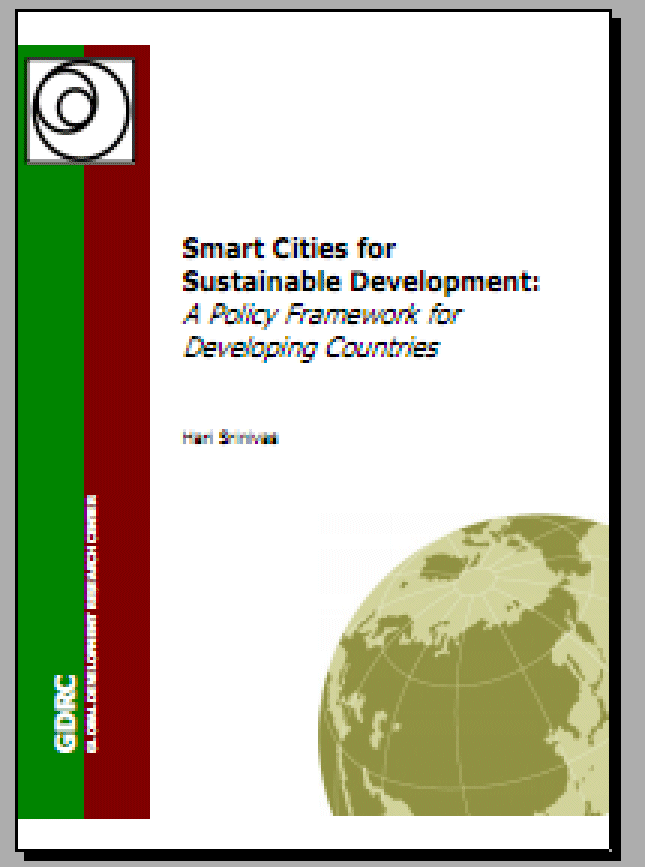Smart Cities for Sustainable Development:
A Policy Framework for Developing Countries
| Hari Srinivas | |
| Policy Analysis Series E-122. August 2020. |
|
Abstract: Two key processes have fundamentally changed the way human settlements have development over the last two centuries - globalization and human migration. Globalization has enabled the separation of humans from the land that had defined an agrarian lifestyle. Migration also contributed to growth of cities, catering to the innate need of people for a "better" quality of life, better jobs, better homes, higher incomes, or access to education, health and other public services. Besides these two processes, "push" factors such as poverty, disasters and conflicts, lack of economic and social opportunities etc., have also triggered migration to cities. As the number of people arriving and living in cities has increased over the years, this has led to a number of challenges faced by both urban authorities as well as its residents. The paper discusses these challenges and the need to intrapolate the global priorities of sustainable development (particularly in light of the recently promulgated Sustainable Development Goals) to the level of cities, where day-to-day lifestyle decisions are made. This is where the concept of smart cities comes in. Smart cities, with its widely differing definitions, can make significant contributions to enable cities to be more efficient, accessible and sustainable.
Keywords: |

This work by GDRC is licensed under a Creative Commons
Attribution-ShareAlike 4.0 International License. You are free to share and adapt this piece of work for your own purposes, as long as it is appropriately cited.
More info: http://creativecommons.org/licenses/by-sa/4.0/
on

Return to the Smart Cities Research Initiative (SIRI)
Contact - 


